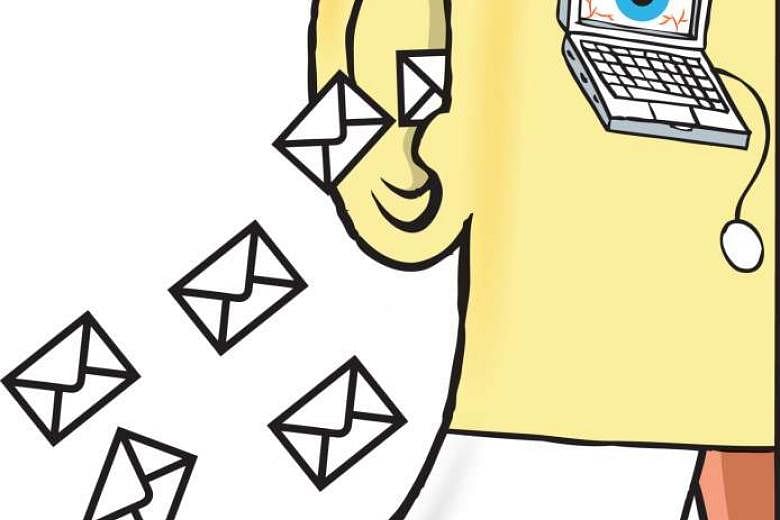Nobody knows exactly what Mr Martin Winterkorn did on the weekend of May 24, 2014. As a football fan and board member at Bayern Munich, the man who was then chief executive of Volkswagen (VW) may have watched Real Madrid beat Atletico Madrid in the Champions League final that Saturday. He may have caught the Monaco Grand Prix the following day - where Nico Rosberg and Lewis Hamilton of Mercedes battled it out.
And he may have read a memo about a study indicating "irregularities" in US tests on emissions from two VW diesel vehicles. Or he may not have.
The memo was, as VW revealed this week, part of his "extensive weekend mail", delivered more than a year before those irregularities triggered a scandal that pitched Mr Winterkorn out of the company last September.
Whether or not VW is being disingenuous about exactly what the former boss knew, and when he may have known it, the "vital memo I missed" scenario is every leader's nightmare. Swamped by information, chief executives, government ministers and military commanders are ever more vulnerable to the retrospective charge that they should have seen the crisis coming - and, worse, that they were warned it was on its way.
"I doubt if the people of other times had the information overload we have," a psychiatrist told The Wall Street Journal in 1979, in an early use of the now-ubiquitous term. But if information overload was a problem almost four decades ago, it is even more of a blight now - and the very tools that executives use to filter and distil important information are making the problem worse. Bain & Company, the consultancy, has estimated that executives in the 1970s had to deal with fewer than 1,000 phone calls, telexes and telegrams a year from people outside their company. These days, 30,000 external communications clog managers' inboxes annually.

As Henry Mintzberg asks in his 2009 book, Managing: "Might the Internet, by giving the illusion of control, in fact be robbing managers of control? In other words, are the ostensible conductors becoming more like puppets?"
Not knowing, however, often seems worse than knowing too much. Mr Alistair Darling, then British Chancellor of the Exchequer, learnt about unprecedented central bank intervention in summer 2007, when he spotted a copy of the Financial Times while buying his breakfast at a Majorca supermarket. Calling the office, he wrote later: "It took several hours to find someone with any idea of what was going on. It was infuriating. Why hadn't I been phoned?"
Similarly, after the dust had settled on the World Trade Center and the Pentagon, inquiries into the 9/11 attacks revealed failures to share intelligence between the Federal Bureau of Investigation and the Central Intelligence Agency. A security briefing sent to then US President George W. Bush in August 2001 - and headlined "Bin Ladin determined to strike in US" - fuelled debate about whether the strikes should have been anticipated.
After a disaster, such signals resound like klaxons. Techno-optimists think cognitive computing may help spot important patterns. But, while machines can anticipate a rock-paper-scissors decision, artificial intelligence is still not at the stage where it can significantly reduce the burden of information overload on chief executive, prime minister or general.
How to handle the overload?
The old-fashioned ways: Set priorities and ask people.
British ministers, who take home red boxes full of papers to read at the weekend, have teams of advisers and civil servants who can assess what is important and arrange their extensive mail accordingly. One former British government adviser says he and colleagues saw their role as "multiplying the minister" - to increase the boss' ability to spot problems and neutralise threats.
But leaders need also to draw on people beyond their close circle. Otherwise, as Professor Davide Nicolini of Warwick Business School puts it: "You end up with a poor diet (of information). You still get the food, but without the vitamins and, in the end, you get a disease."
His research into how seven leaders in Britain's National Health Service dealt with information showed that the most effective had planted human "thermometers" - including at levels that the loftiest chief executive might disdain, such as among cafeteria workers and in the wards - to help detect "weak signals" of future challenges and opportunities. They then compared and combined what they learnt with other advice, written material and even social media gossip. Relying on technology alone is risky, Prof Nicolini says. "It doesn't come with trust attached, but people do."
Mr Winterkorn probably receives less weekend mail these days.
He should take time in the next couple of days to read Winston Churchill's The Hinge Of Fate, in which the wartime prime minister recalled his shocked realisation in 1942 that Singapore was fatally undefended: "I ought to have known. My advisers ought to have known and I ought to have been told, and I ought to have asked."
THE FINANCIAL TIMES

